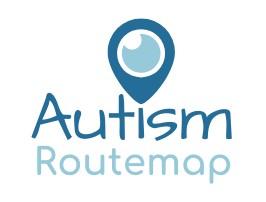The power of "ag shame"

A few days ago, I was chatting with a friend who shared a simple piece of wisdom that has revolutionised conversation with my daughter.
Like all parents, I have spent many hours teaching my children new skills. From how to hold their knife and fork or use the potty as toddlers to managing money and staying safe as teens and young adults. “Life lectures” as I called them, have featured in countless conversations on the way to school or around the dinner table at home. My mission (dutifully accepted) was to download all I knew to protect my children and help them avoid the road bumps that tripped me up.
But here’s the thing. There comes a point when children no longer want advice from their parents. They need to figure things out for themselves and find their own way in life. Spreading their wings is how they grow and learn.
And so the habit of sharing daily lessons must be shelved in favour of something different. Something that actually works rather than persisting with a tool that not only fails but causes conflict.
And that something is the gem that my friend so kindly handed to me. You just need to say, “ag shame”.
Now, my South African readers will instantly recognise the meaning of that little phrase. But for those of you who don’t hail from that part of the world, let me explain. “Ag shame” is a catch-all phrase that means many things. It says, “oh no”, “I hear you”, “I’m here for you”, “I’m sorry you’re going through that”, “I’m with you”, “That sounds really tough”.
“Ag shame” works like Velcro to connect you to the other person but it doesn’t tell them what to do. It’s the verbal equivalent of a hug.
Finding and sharing solutions is not just the speciality of parents. It’s what many of us are paid to do. Teachers are paid to show children how to read, write and do maths (amongst other things). Doctors are paid to find the source of the problem and tell us what to do about it. Architects are paid to design houses that show the builder what to build.
So it’s not surprising then that we bring our solution-trained minds into everyday conversation. We naturally try to fix things. Doing feels good. Putting a plaster on a bleeding knee somehow feels more useful than giving a hug. But the truth, is that the hug probably holds way more value than the plaster.
We as humans, need to know that someone has our back, that we are cared for. For the most part, we don’t need solutions from our family and friends. We need sounding boards and cheerleaders. People who are for us.
I remember a time when my mother was moving and trying to decide which of two homes would be best for her. I listened as she talked through the pros and cons of each house. After a while, she thanked me for helping her to decide. I wondered what she meant since I had said … exactly nothing.
The presence of another person is a powerful thing. So the next time you are about to offer advice, remember the pearl of wisdom from my friend. Unless you are at work, “ag shame” may be just what is needed. Not literally of course – unless you are speaking to a South African. It’s a mental hook to remind you that care and concern trumps the solution you were about to offer.
To the power of "ag shame"!
Linda Philips
MSc. Human Communication
Autism Routemap supports autistic and neurodivergent people with coaching and training to improve communication, people skills and emotional well-being. Interested in knowing how we can help?
Contact linda.philips@autismroutemap.com or book a free Turning Point call here.

